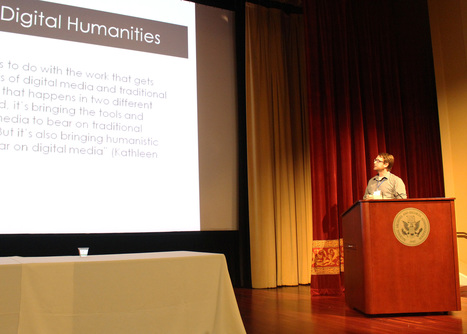Avec le numérique, ne peut-on pas générer ces « révolutions minuscules » ou ces « petits moments magiques », qui bousculent les certitudes et qui « boostent » la réflexion des élèves comme le disait si bien Jean Pierre Astolfi, et qui permettent aussi une réflexion des enseignants sur les différentes façons d’apprendre? Ces moments de manipulation via les interfaces numérique et en liaison avec l’apprenant directement concerné, ne sont-ils pas une façon de faire vivre concrètement dans l’action, l’expérience de ce qu’un savoir en construction produit comme surprise et inspiration ? Nous pouvons repenser ici à ce que Louis Legrand appelait une « pédagogie de l’étonnement » et Georges Snyders « la joie à l’école » !
Research and publish the best content.
Get Started for FREE
Sign up with Facebook Sign up with X
I don't have a Facebook or a X account
Already have an account: Login
E-citizens, e-patients, communities in shaping e-health, health literacy.
Curated by
Giuseppe Fattori
 Your new post is loading... Your new post is loading...
 Your new post is loading... Your new post is loading...
|
|












